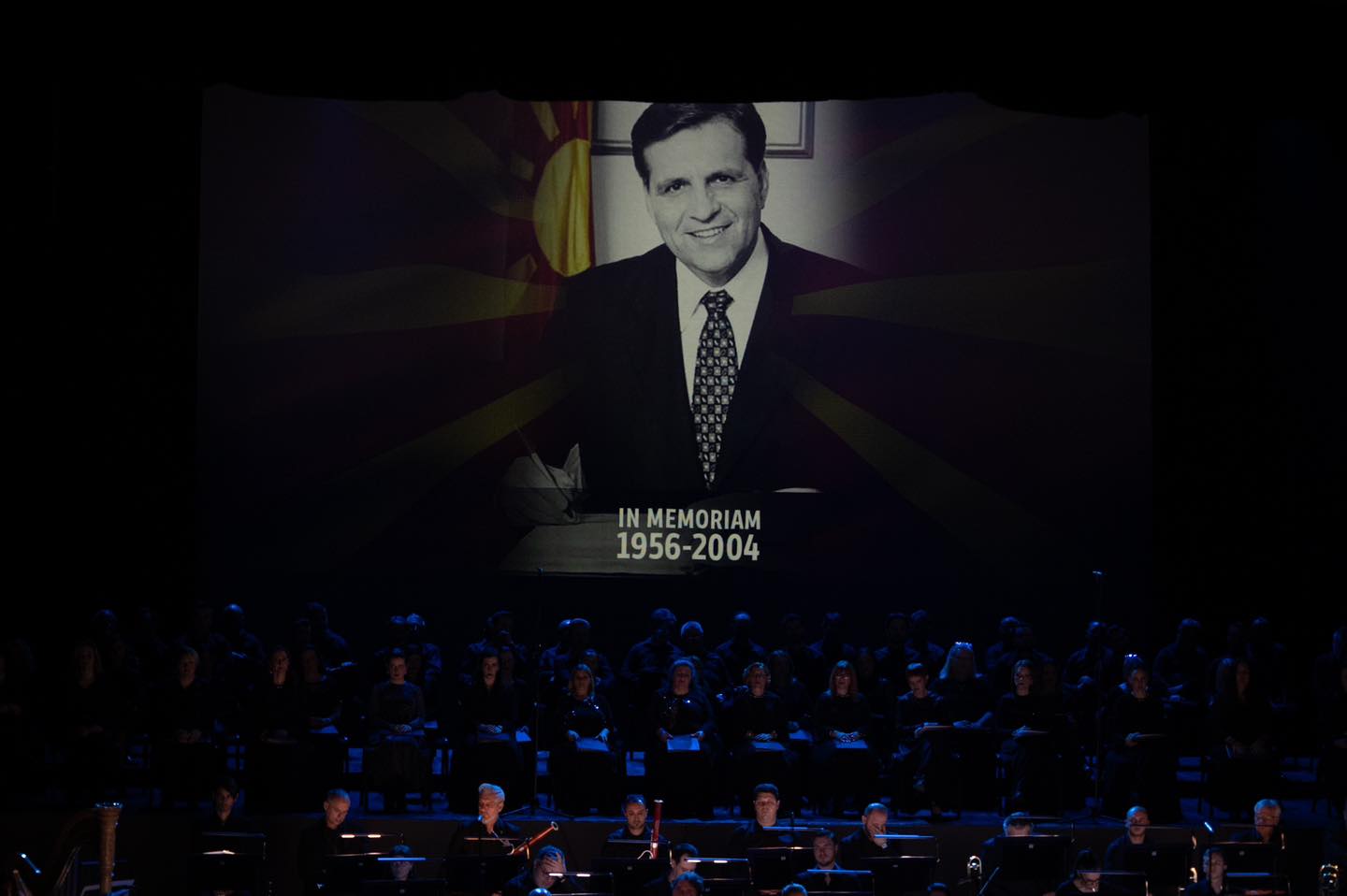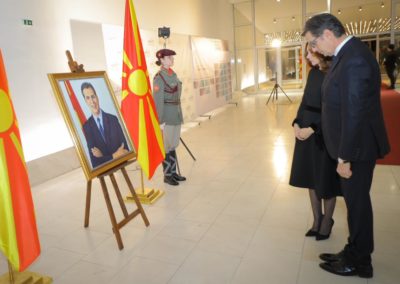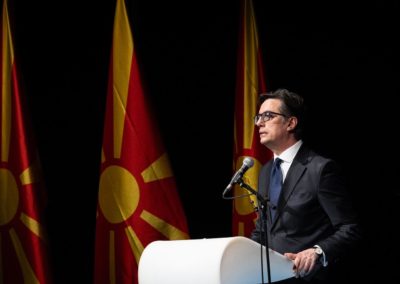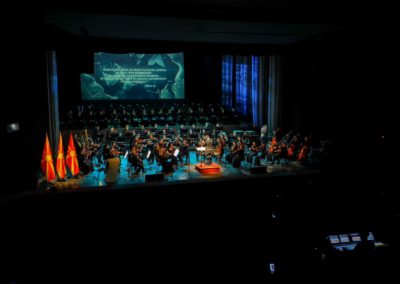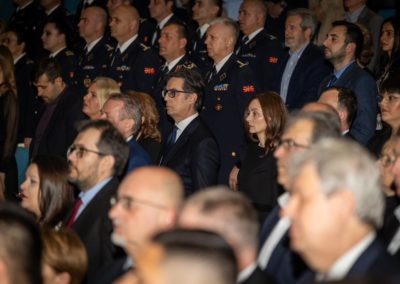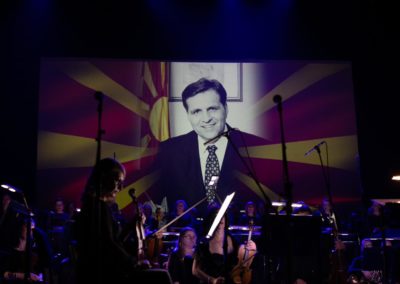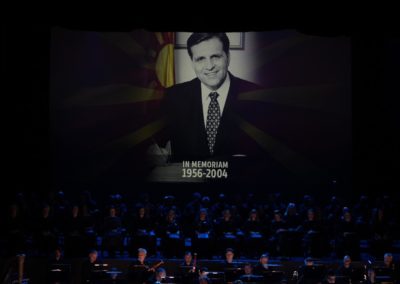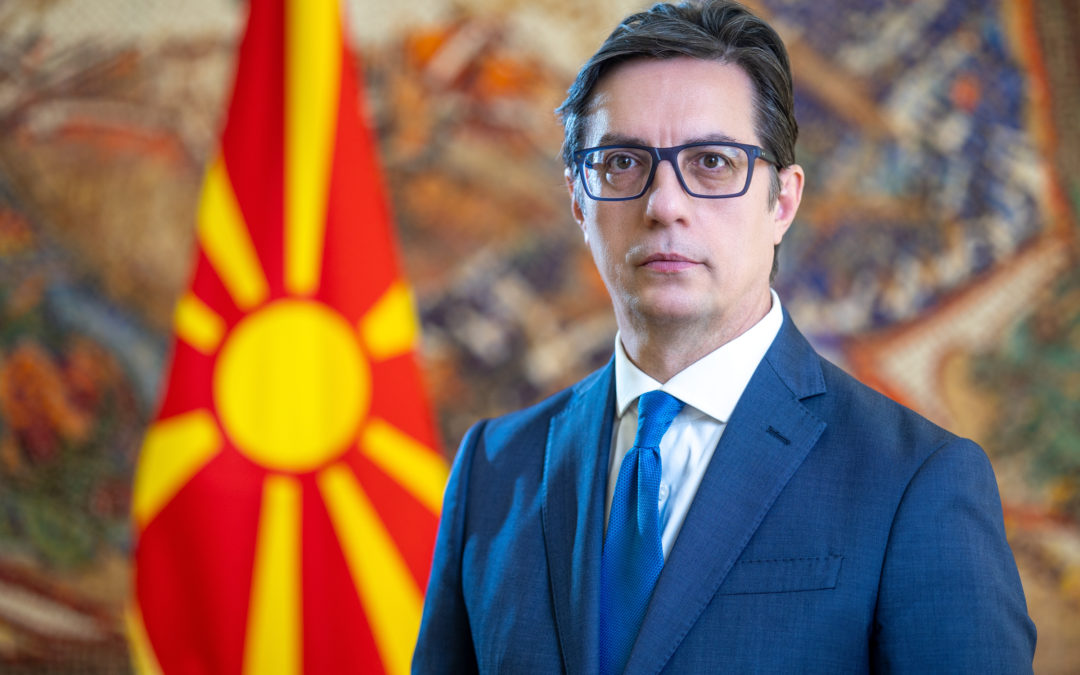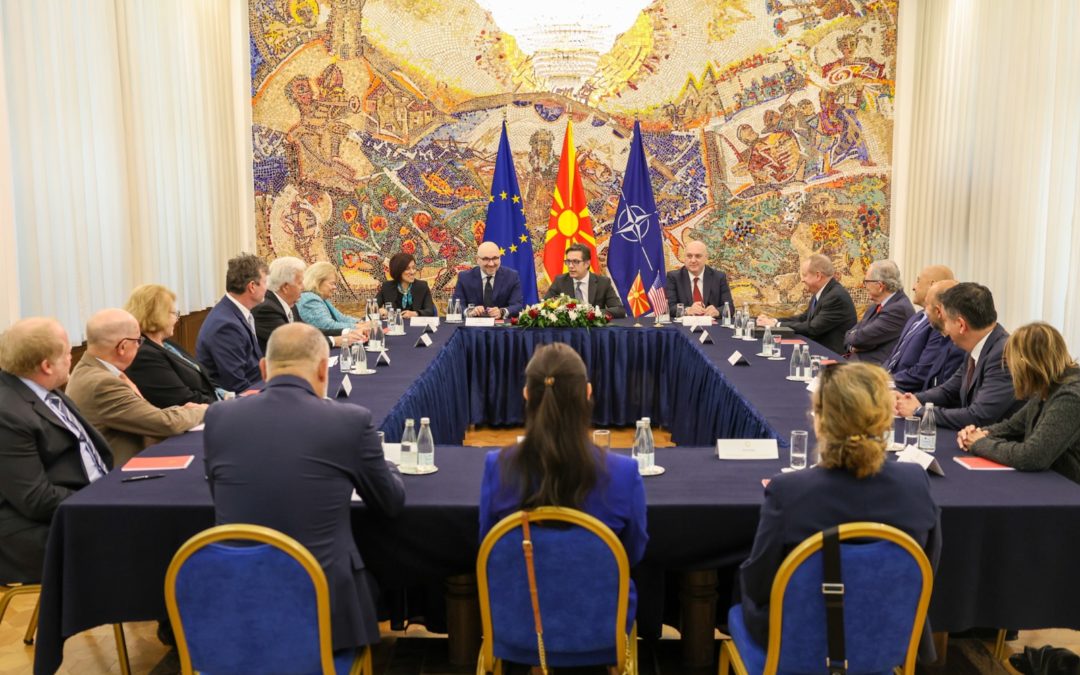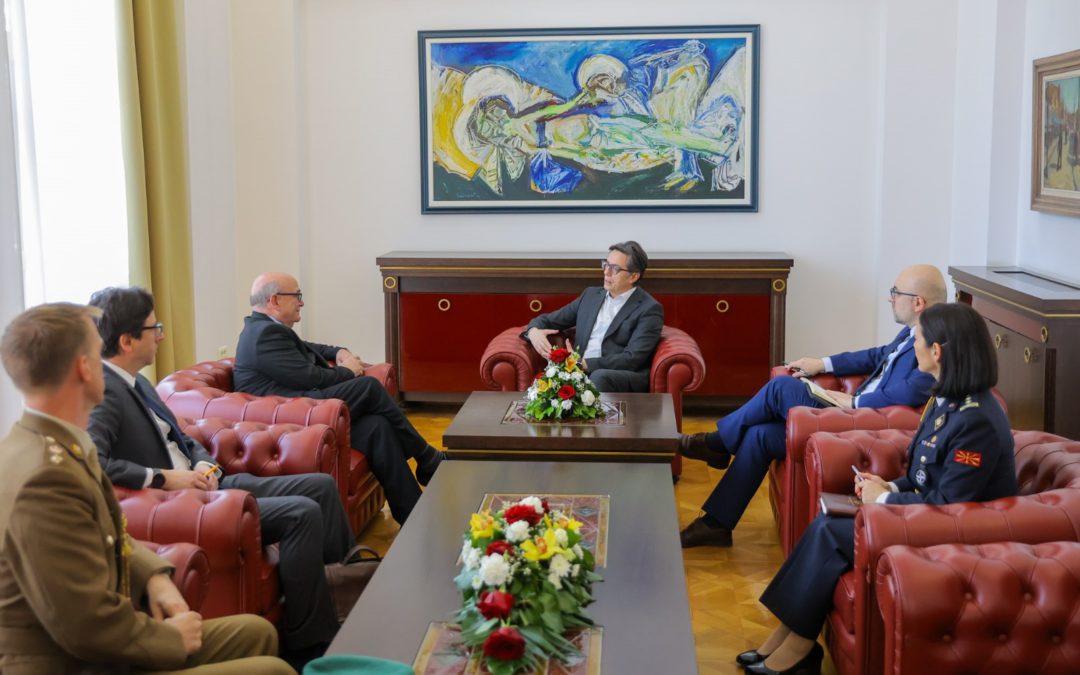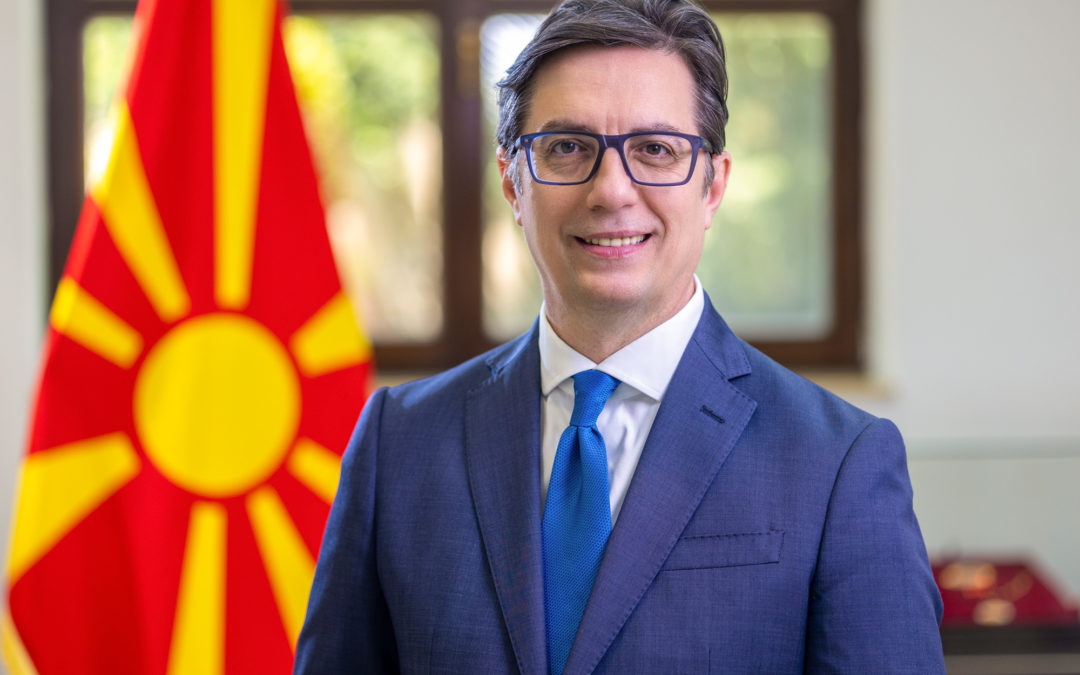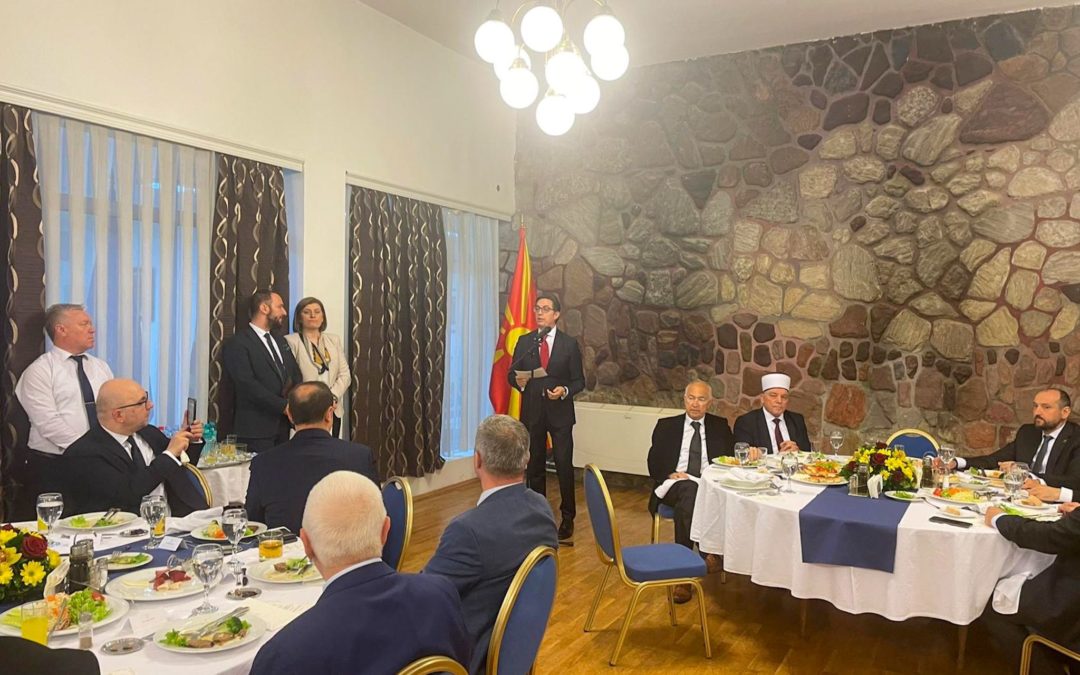Yesterday evening, President Stevo Pendarovski addressed the commemorative event on the occasion of the 20th anniversary of the death of President Boris Trajkovski and members of the delegation, which was held at the National Opera and Ballet.
The commemorative event was attended by members of the families of the deceased, state-government representatives, religious communities, the diplomatic corps, political parties, as well as civil society organizations.
Respected Mrs. Trajkovska, dear Stefan and Sara,
Respected family members of our deceased colleagues,
Dear citizens, Excellencies,
Ladies and gentlemen,
Today marks 20 years since we lost President Boris Trajkovski. This evening, we recollect his tragic death, as well as the death of eight of his associates, my dear colleagues. We remember Dimka Ilkova-Boskovic, Risto Blazevski, Anita Krisan-Lozanoska, Mile Krstevski, Boris Velinov and Ace Bozinovski and the pilots Marko Markovski and Branko Ivanovski. Eternal glory to all of them!
This day is an opportunity to be reminded of who Boris Trajkovski was: the second president of independent Macedonia, the man for whom I worked for three years. Most probably, the best way is to start with his letter to the Ecumenical Patriarch Bartholomew, just a month before his death, in which he defined himself as a man who fights “against all extreme options that harm each and every one […] for not only in heaven, but also on earth, there is room enough for all men, regardless of which God they believe in”.
Boris easily overcame political, party, ethnic and religious barriers. He was breaking the taboos of nationalism. He was elected president with the votes of all ethnic communities. He was the first Macedonian president to visit a mosque during the Ramadan feast, the first to speak in the language of another ethnic community. Although he was a Protestant, he constantly and earnestly advocated for recognition of the autocephaly of the Macedonian Orthodox Church.
He had faith in people and hope that kindness would prevail. Trajkovski offered a new model of leadership to the wider Balkan political scene, which, throughout history, was accustomed to cults of personalities and autocrats. What was a practiced PR strategy for many politicians, Boris did spontaneously and without calculations, with a sincere and broad smile. His words matched his actions, and his actions matched the real needs of the state. It opened many doors for him, among his fellow citizens, but also to regional and world leaders.
His friendship with the most powerful politician in the world, the US President Bush, is well known. But he also met regularly with statesmen of the caliber of Jacques Chirac, Vaclav Havel, Jiang Zemin, Emperor Akihito, Queen Elizabeth, and many others.
Boris Trajkovski believed in Macedonia the most. His vision was “a society based on the individual, not on ethnic groups, on the citizen, not on majorities and minorities”.
Moreover, Boris believed in the capacity of our small country to change the environment in Southeast Europe. He reminded the leaders of the region that they have a moral obligation not to leave to the future generations unreformed societies, low living standards, insecurity, instability and a damaged reputation. He once said: “the countries of the region will either join the European Union or remain in a criminal union”.
However, his regional commitments were not merely rhetorical. With his informal approach, he managed in just a few days to convince four presidents to join him in his commitment to the European future of the region. At the European Union Summit in December 2002, the European leaders were taken aback by a letter signed by five presidents of Balkan states who had previously been unable to agree on a single issue.
With the US support, Boris initiated the Adriatic Charter to accelerate the integration of Macedonia, Albania and Croatia into NATO. With the help of UNESCO, he launched the “Dialogue among Civilizations” forum, which brought together political and religious leaders from the region and the world. He established the scholarships for MBA studies at the University of Sheffield in Thessaloniki, as a measure of building trust between the Macedonian and the Greek society.
Still, the most important part of his legacy is peace. Trajkovski was at the head of the state during the most difficult years of independence, when we faced the biggest threat to our survival. In 2001, the preacher-turned-president and commander-in-chief faced the moral dilemma of signing orders for deployment of military forces and did not keep secret that those decisions were the most difficult in his life.
He said: “It is in the human nature to forgive and stretch a hand”, and that the state is obliged to create an environment for reconciliation for the sake of common living in the common homeland.
Trajkovski was not only one of the signatories of the Ohrid Framework Agreement, but he was also the patron of the political talks, the initiator of the constitutional changes and the main driver of the process that transformed the military conflict into a political dialogue in the institutions. He was confident that with the correct implementation of the Framework Agreement, violence is not only rejected, but also the unity of the state and the multi-ethnic coexistence are preserved.
Because of his decisions, Trajkovski was attacked, mostly by “his own”. His critics considered his humility a weakness, and his willingness to forgive – naivety. But he did not deviate from the goal he believed to be right.
Membership in NATO and strategic partnership with the United States was his absolute political priority. He was the first to accept the proposal to include Macedonia in the global anti-terrorist coalition with own peacekeepers, while there were still EU and NATO peacekeeping missions on our territory. If he were alive, when the NATO flag was raised in front of the Macedonian Government on 12 February 2019, Boris Trajkovski would definitely be the happiest among us all.
But for him, this strategic goal was a means to achieve another, even more important goal – the prosperity of the Macedonian state and the well-being of its citizens.
His focus was the youth. He initiated the “Vision for the Future” project to enable every graduating high school student to be computer literate, thus practically starting the process of mass digitization in our country.
In December 2003, Boris gave a speech at the University of Southeast Europe in Tetovo, where he addressed the students twice in Albanian. His key message was that “books, not bullets, will integrate us into Europe”. In that same 2003, addressing the students in his native Strumica, he shared his vision for Macedonia as an integrated part of Europe, saying that “you, young people, when you learn about the future, you actually learn about Europe. Your generation will be European”.
Apart from the young people, he also took care of the “ordinary” people, especially the vulnerable, the sick, the old, the forgotten. He often would, without cameras and without announcement, visit hospitals, nursing homes, orphanages…
Respected guests,
In the most difficult moments for the country, Boris Trajkovski was not alone. The majority of Macedonian citizens were with him, those who chose peace over war, coexistence over chauvinism, forgiveness over hatred. At the Atlantic Council Leaders’ Forum, he said: “no country can survive if its citizens do not love and respect it”. Macedonia survived because the citizens believed in it.
Unfortunately, 20 years later, we find ourselves in a new, deep crisis, which is not a military one, but a value one. Many of the values that Trajkovski stood for have been called into question. Many chances were missed and much time was lost. European integrations are stuck and reforms slowed down. We have party-based division in the institutions, ethnicization of politics and divisions on almost every basis – civil, ethnic, political, generational.
Widespread corruption devalues justice, paralyzes the system, spreads cynicism, robs young people of any perspective and empties the state.
Dear friends,
Many times I wonder what Boris would say about all this and how he would act in such circumstances. And, I keep coming back to his faith in the Macedonian citizens when he said “together we will do what history, but even more the future, ask of us”.
The last document he signed, together with the then Prime Minister Crvenkovski, was the request of the Republic of Macedonia for membership in the European Union. It was an ultimate priority for him.
Trajkovski was aware that the European integration is an undertaking that goes beyond one mandate and that the goal is not achieved only by the formal adoption of the European legislation, but by accepting the European values, by changing the mentality of people, by strengthening the civil sector, with an independent and efficient judiciary, with functional and accountable institutions, with the rule of law. By putting the common good and the public interest before personal and party interests.
That letter to the European Union is the political testament of Boris Trajkovski, however, the attainment of that goal is the task of our generation, which depends on whether, as he said, “we will follow the path of progress or continue with the habit of patching up life from today to tomorrow, waiting for the problems to be solved by themselves or for someone else to solve them instead of us”.
I am deeply convinced that the vast majority of Macedonian citizens want to participate in the national project with strategic dimensions through which North Macedonia will be a functional legal state with opportunities for our young people to stay in their homeland and get involved here in the battles of the 21st century for economic growth, digital development and healthy environment.
Ladies and gentlemen,
In the end, you will allow me to conclude by recalling a short dialogue I had with President Trajkovski in December 2003. Boris asked me to add a paragraph to his last annual address which, he said, would best describe him as a man and a politician. This is that part:
“Cabinet management of people’s destiny, instead of being a part of the bad past, continues to be the dominant style of behavior of most politicians occupying responsible positions. We must not allow politicians with elitist views to legitimize themselves as authentic representatives of the people, who need the people only once every four years, when they need to get or extend their mandate. By electing such people, a semblance of democracy is created in which the citizens are under the illusion that they are managing their own destiny, and instead of them, it is being done by those who, on their behalf, look after their private, party or family interests exclusively.
I started my mandate as president of the Republic of Macedonia with daily meetings and conversations with ordinary people from all walks of life, and I want to finish it that way.”
When I gave him to read this part, he stopped for a moment and said: “Yes, indeed, that is me”.
Thank you.
